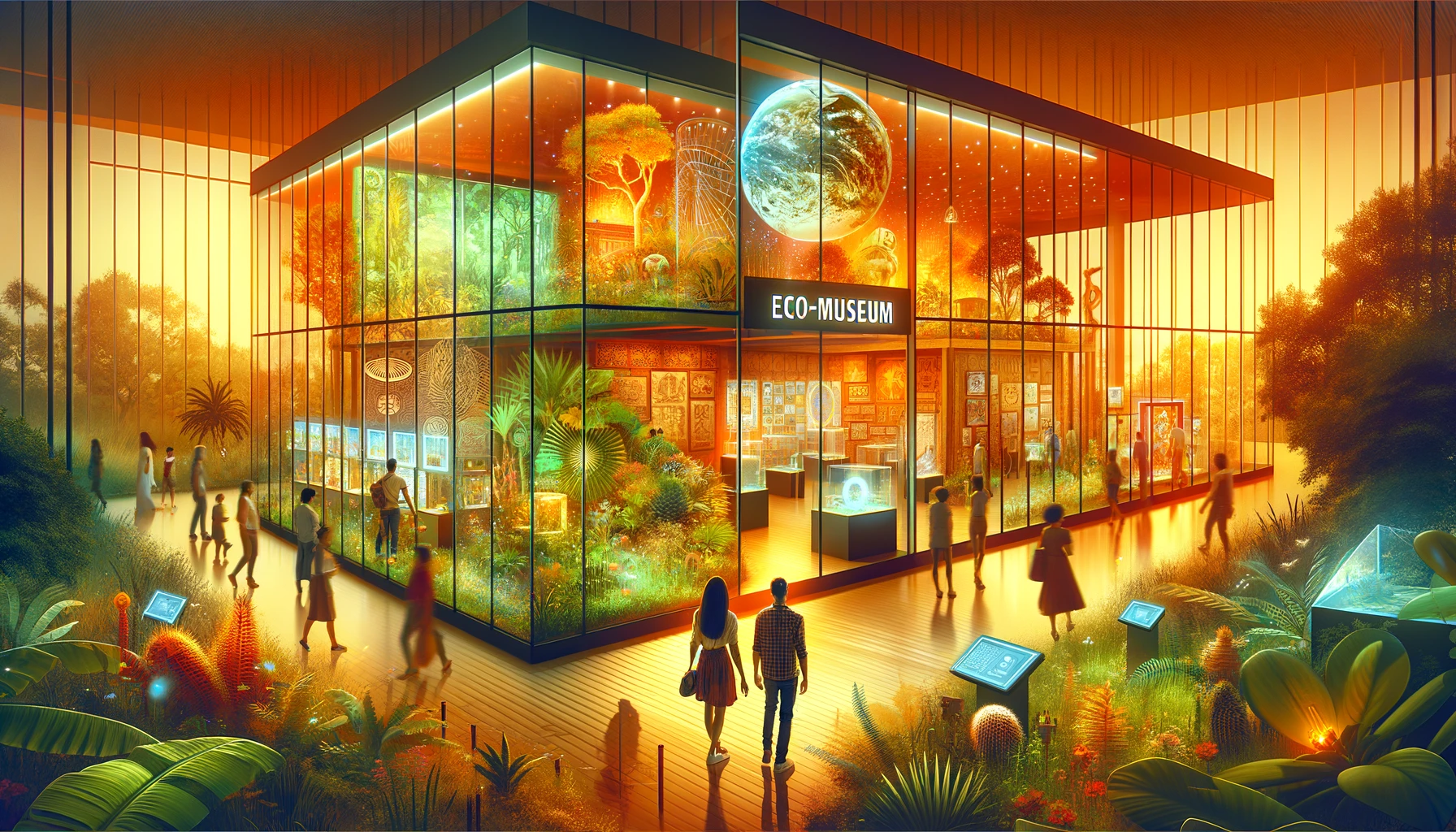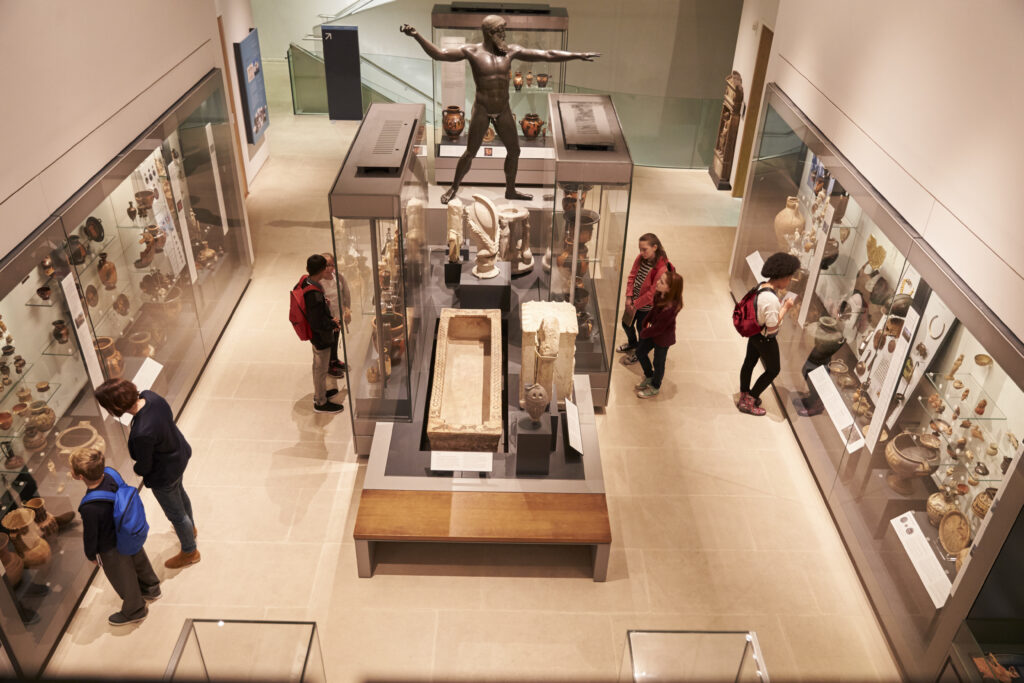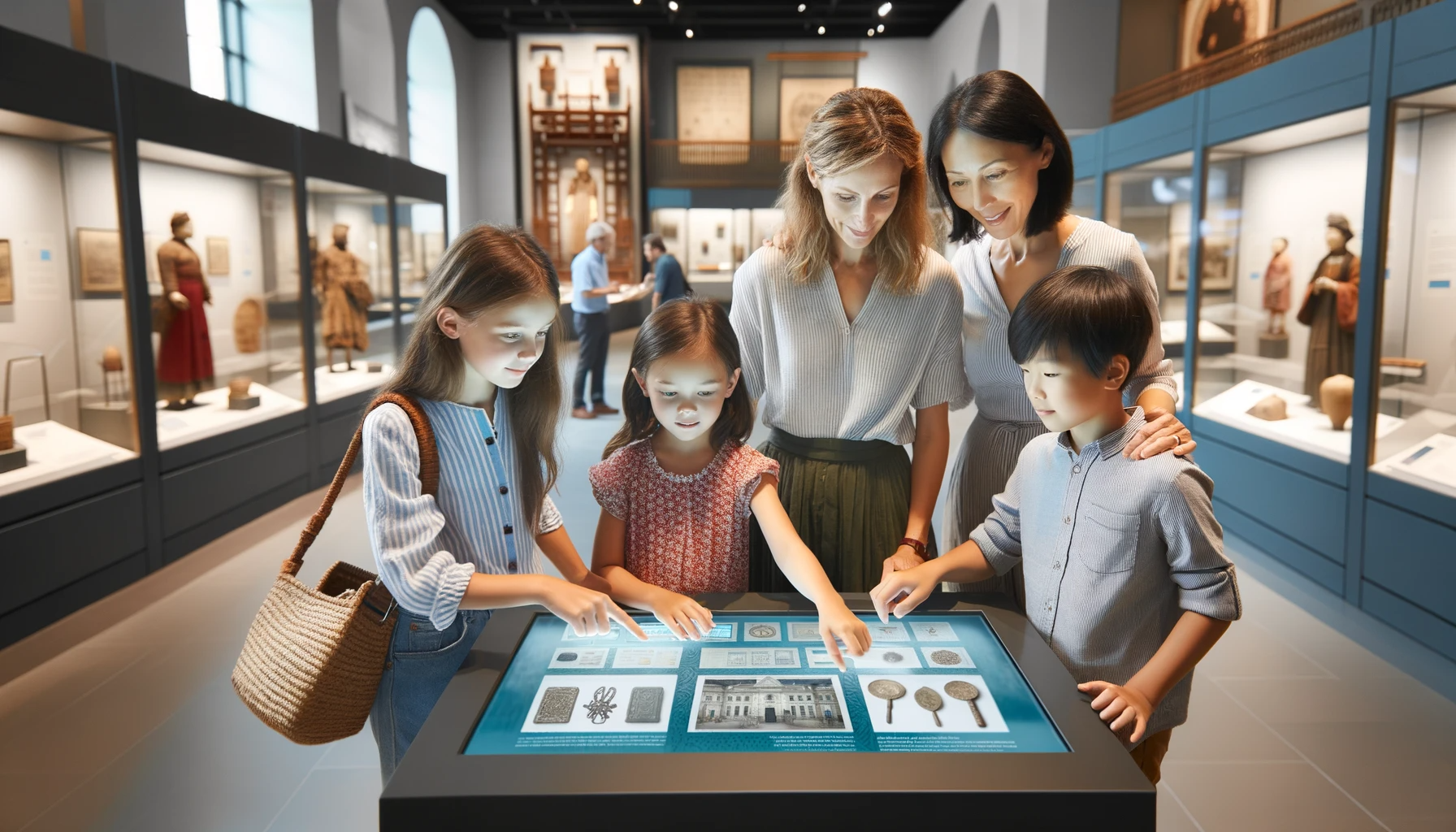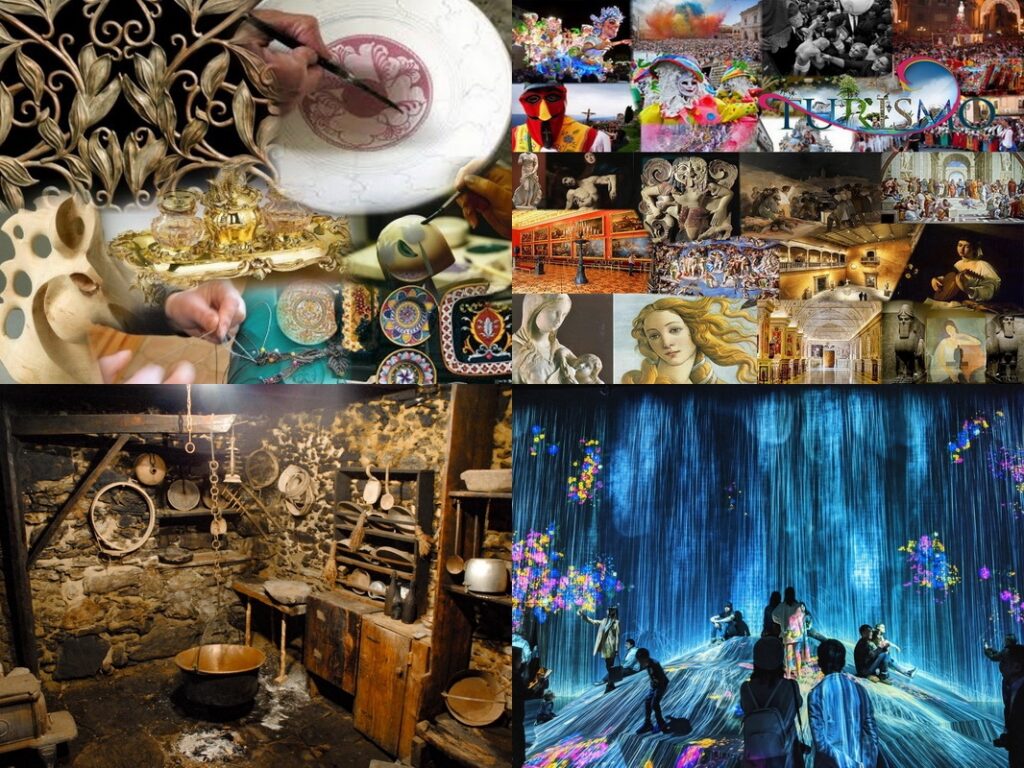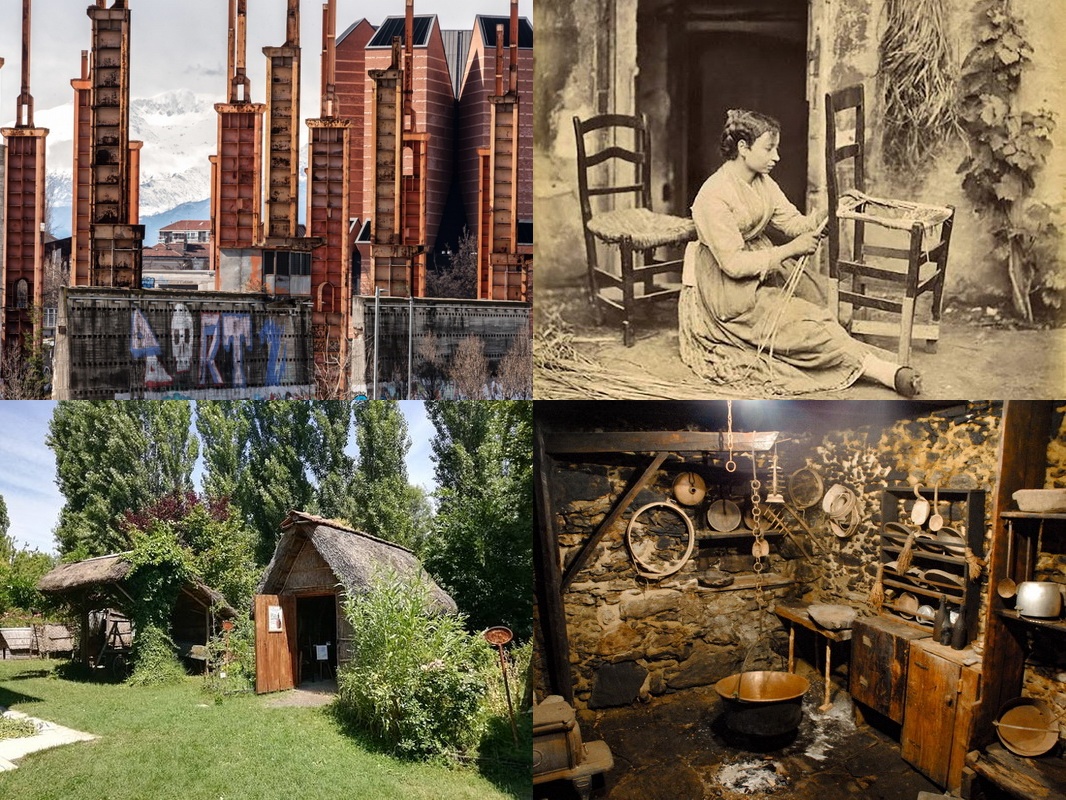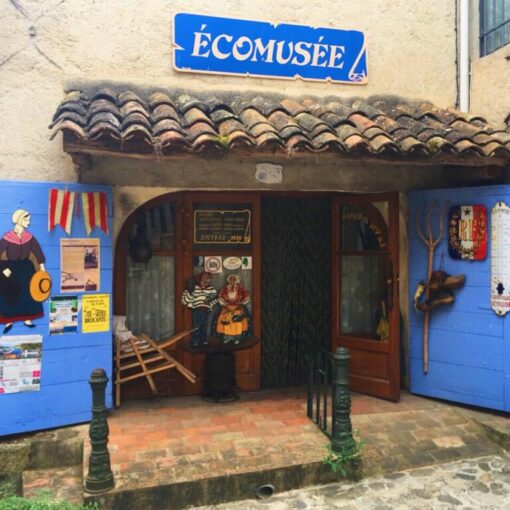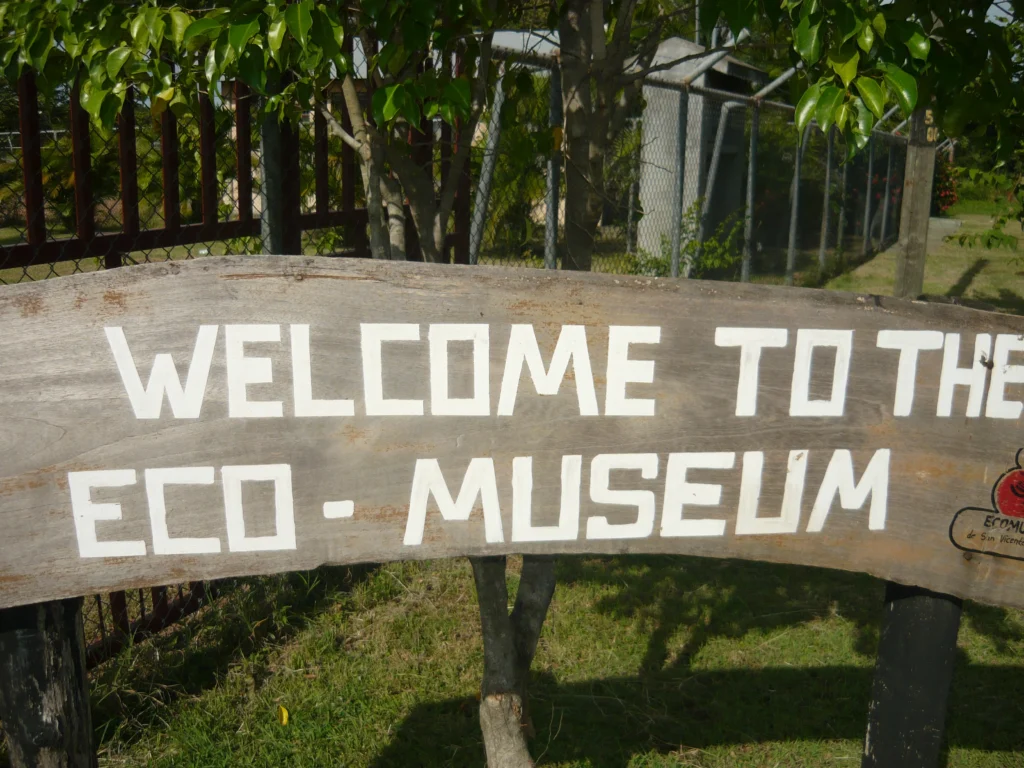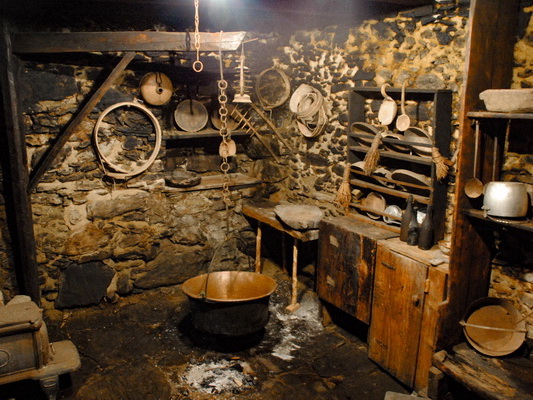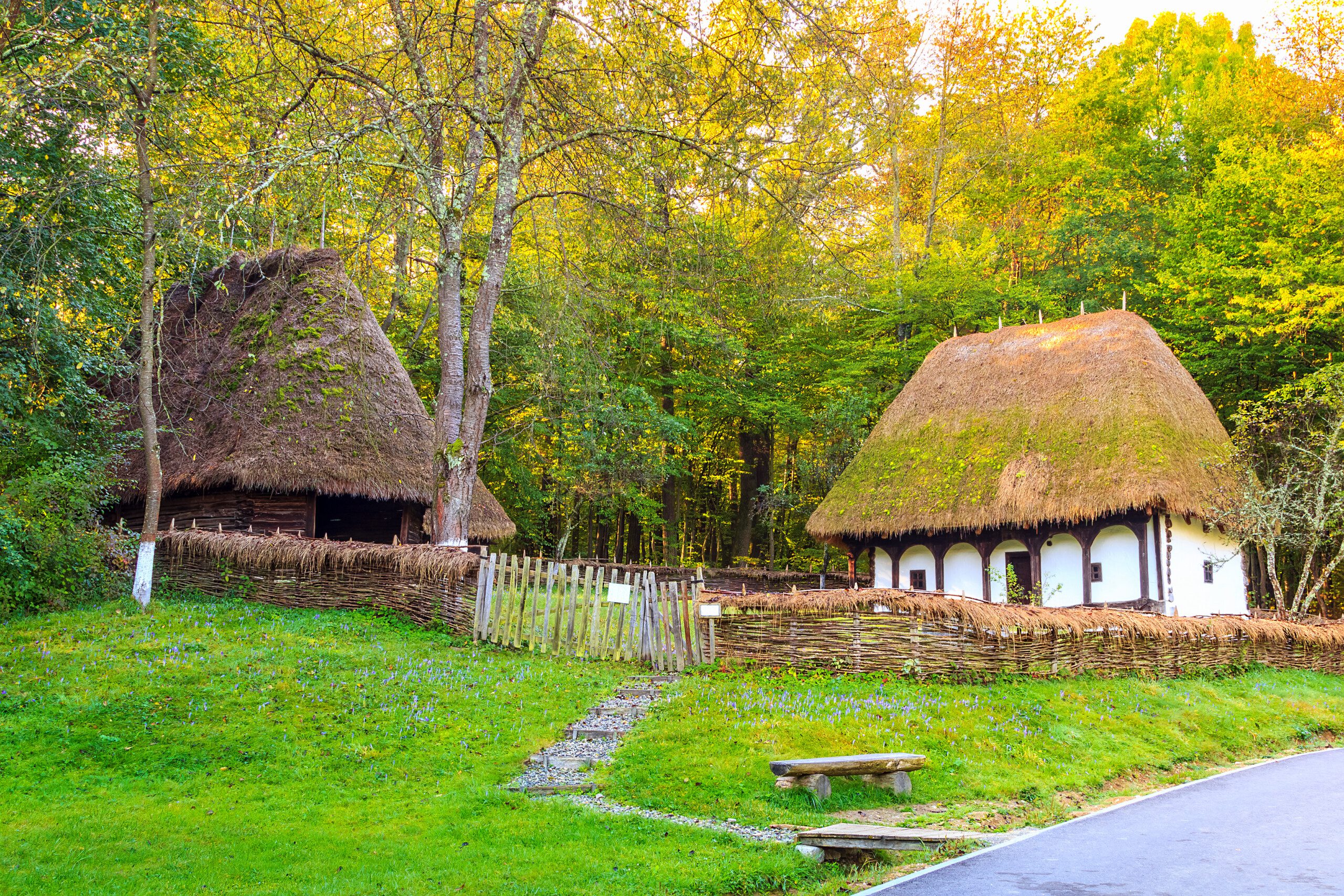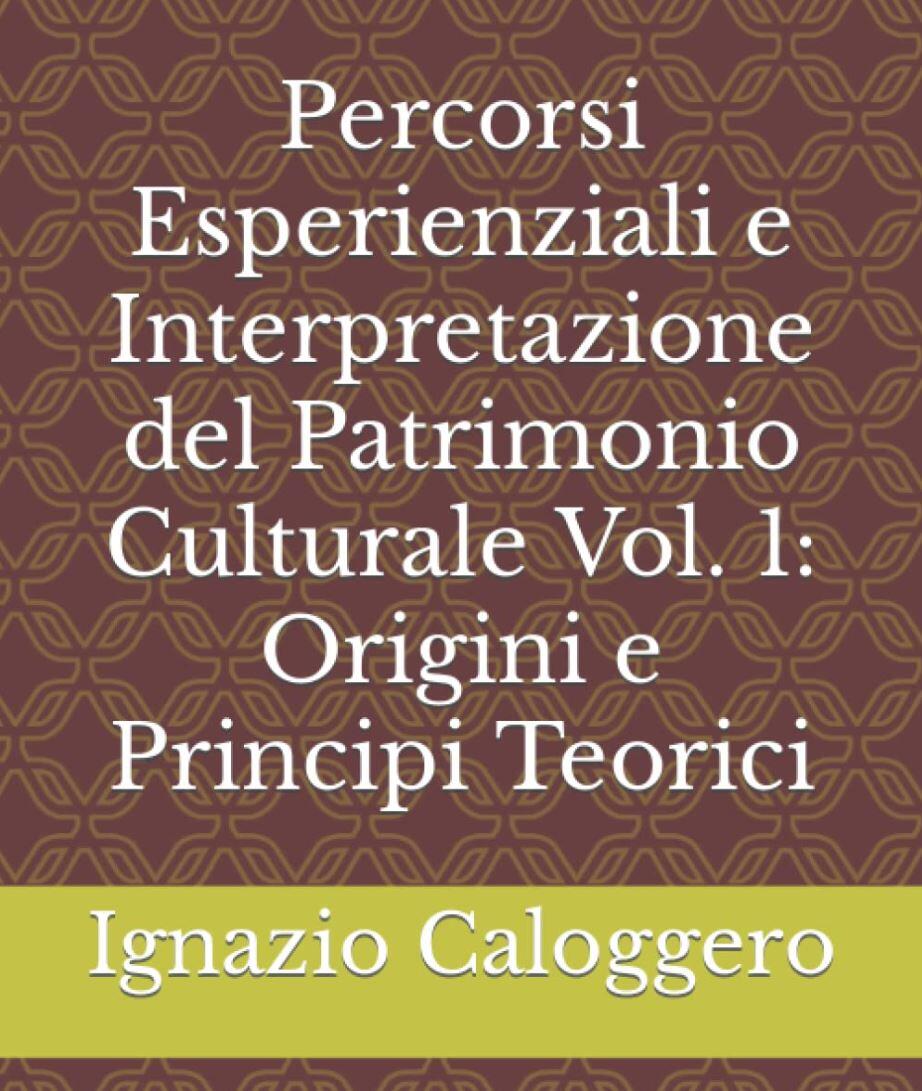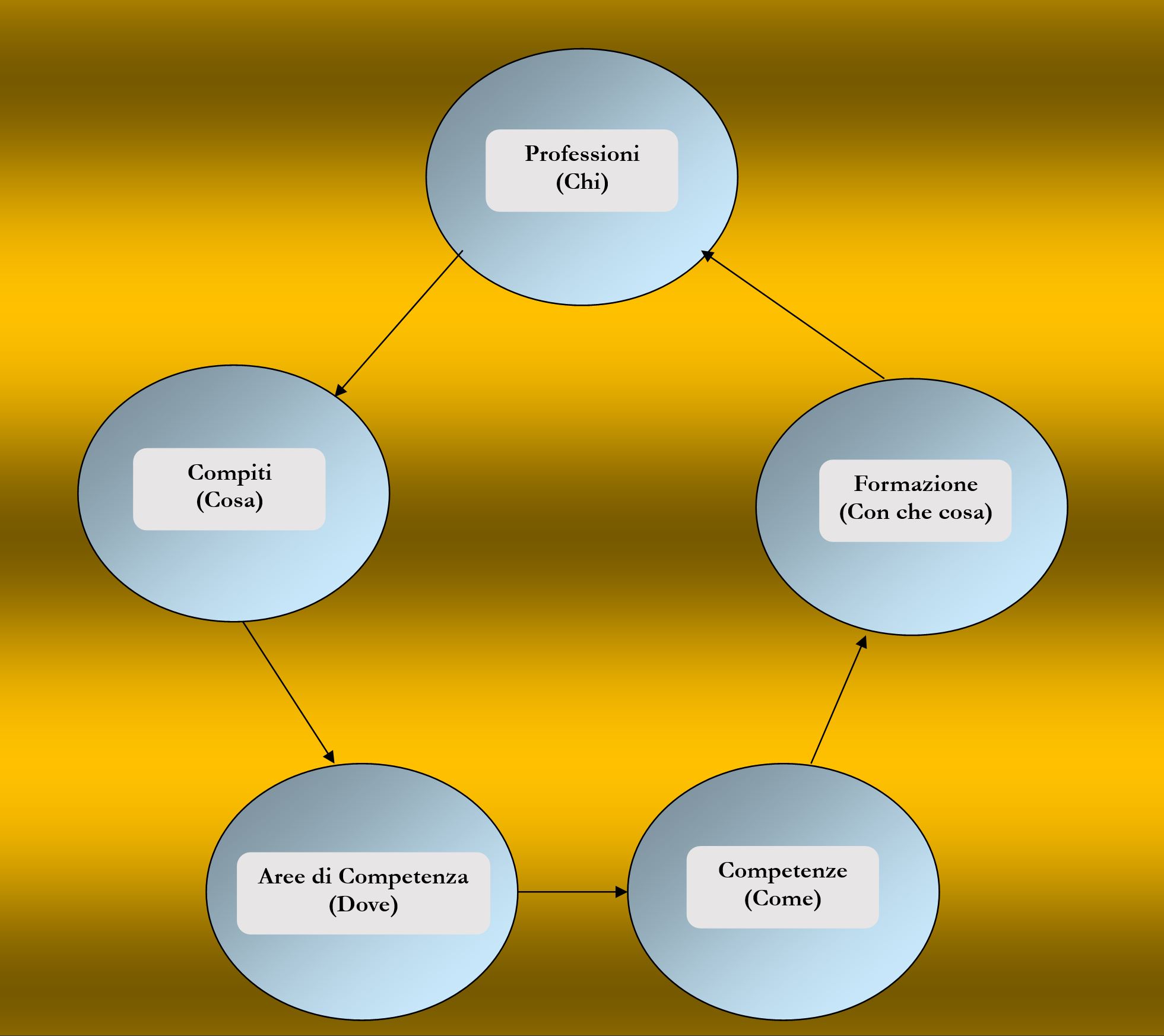Museum and Ecomuseum in comparison in the light of the ICOM definition of Museum of 2022
by Ignazio Caloggero
Reference Page: Special Heritage Interpretation (Heritage Interpretation)
The article is extracted from the volume “Ecomuseums and Cultural Heritage Interpretation Towards Heritage Interpretation Experience Centers (CEIP)”
Definition of Museum (ICOM 2022)
On 24 August 2022, in the context of the Extraordinary General Assembly of ICOM in Prague, the new definition of museum was approved, the result of a long participatory process involving 126 committees around the world. Thus the Art. 3 of the ICOM Statute.
Museum (ICOM – Prague 2022)
The museum is a permanent non-profit institution serving society that researches, collects, conserves, interprets and exhibits material and immaterial cultural heritage.
Open to the public, accessible and inclusive, museums promote diversity and sustainability.
They operate and communicate in an ethical and professional manner and with the participation of communities, offering diverse experiences for education, pleasure, reflection and knowledge sharing.
Let's compare the 2022 ICOM definition of a museum with that of 2007
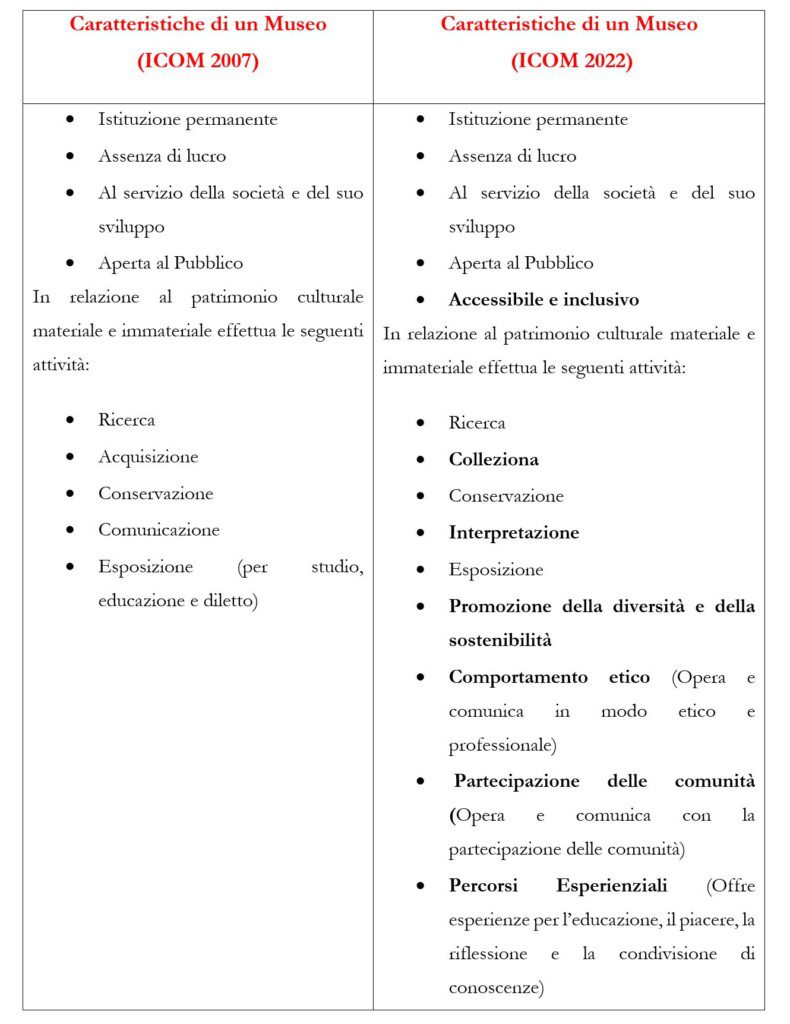
The novelties of the ICOM 2022 definition compared to the 2007 definition of museum
- The museum is not only open to the public but must also respect the principles of "accessibility" and "inclusiveness".
- The term "collection" replaces the previous "acquisition". This term, as ICOM Italia states, is better suited to intangible or widespread heritage and marks a distance with respect to the need for ownership/possession of the asset.
- The concept of "Interpretation of Cultural Heritage" is introduced. This concept had already been included by ICOM in the Siena Charter 2.0 of 2016.
- It is clarified that the Museum has the function of promoting diversity and sustainability
- An explicit reference is made to ethics and professionalism
- The need to involve the communities is clarified. The importance of the concept of Participation concept already explained in the Faro Convention of 2005 and in the Siena Charter 2.0 on "Museums and cultural landscapes" of 2016
- The concept of "Experiential Offer" is introduced
Definitions of interpretive museum
Let's review the definition of ecomuseum given in the previous article "For a new definition of ecomuseum: the interpretative ecomuseum"
Ecomuseum
Institution community service, goal oriented sustainable local development, result of a interpretative and participatory process, which aims at improve, protect, give accessible, national cultural heritage of a territorioreferable to a specification patrimonial community.
Ecomuseum/Museum comparison table
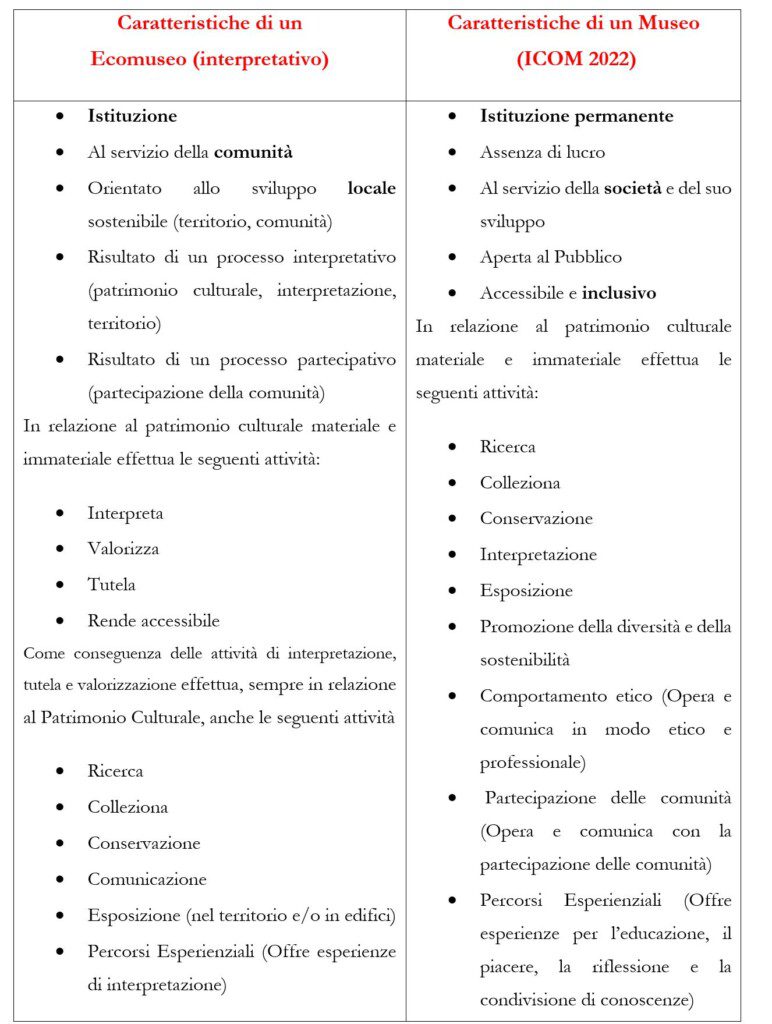
The activity of interpretation involves, remember, the respect of a series of principles that justify the things said in the first column of the previous table, in particular by revisiting some of the principles of interpretation: cultural approach (2), centrality of the participants (4 ), participation (5), experiential learning (6), hermeneutic communication (11), holistic approach (13), tailored approach (14), fact-based interpretation (16), communicative simplicity and coherence (17) we can justify what has been said and also, probably, respect for the principle of inclusiveness indicated in the definition of museum. (for the description of the principles of interpretation see the article "The Principles of Cultural Heritage Interpretation")
As regards the reference target (community or society), considering that if it is true that ecomuseums are born "from and for a community" it is equally true that they must necessarily open up to tourists and therefore ecomuseums are also in fact at the service of society .
As far as the explicit reference to ethics and professionalism is concerned, we recall that this definition is included in a statute, and it is completely normal that there is, but I believe that professional ethics, more than a structural characteristic, should be an applicable principle in any context even if not explicitly referred to.
There probably remains a certain difference as regards the juridical status of the institution and the different level of participation of the community, normally much more profound and institutionalized in ecomuseums, theoretical and still shallow in traditional museums.
The absence of profit, even if not present in the definition of ecomuseum given by me, is in any case a requirement, as a rule, mandatory in regional regulations.
The substantial difference is probably related to the process constitutive, an ecomuseum is the final result of an interpretative and participatory process. A museum, even if, once established, it respects the principles of interpretation and participation, it can be born for different reasons.
At this point it is equally clear how the border between museum and ecomuseum becomes increasingly thin until it almost disappears, at least in some contexts.
Basically both museums and ecomuseums, if they respect the fundamental principles of Interpretation, are to be considered "Cultural Heritage Interpretation Centers"
Article extracted from the course: Basic Course of Ecomuseology
Featured

